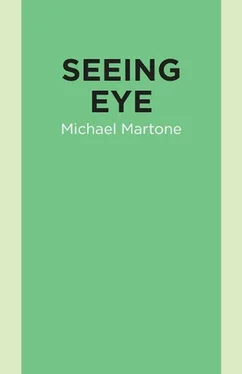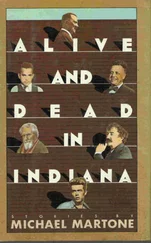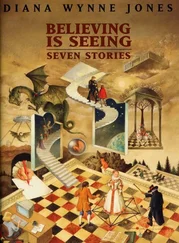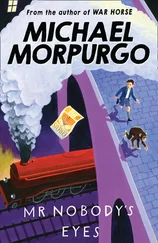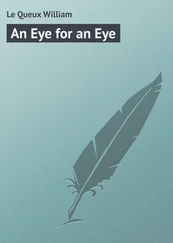Michael Martone - Seeing Eye
Здесь есть возможность читать онлайн «Michael Martone - Seeing Eye» весь текст электронной книги совершенно бесплатно (целиком полную версию без сокращений). В некоторых случаях можно слушать аудио, скачать через торрент в формате fb2 и присутствует краткое содержание. Год выпуска: 2013, Издательство: Dzanc Books, Жанр: Современная проза, на английском языке. Описание произведения, (предисловие) а так же отзывы посетителей доступны на портале библиотеки ЛибКат.
- Название:Seeing Eye
- Автор:
- Издательство:Dzanc Books
- Жанр:
- Год:2013
- ISBN:нет данных
- Рейтинг книги:5 / 5. Голосов: 1
-
Избранное:Добавить в избранное
- Отзывы:
-
Ваша оценка:
- 100
- 1
- 2
- 3
- 4
- 5
Seeing Eye: краткое содержание, описание и аннотация
Предлагаем к чтению аннотацию, описание, краткое содержание или предисловие (зависит от того, что написал сам автор книги «Seeing Eye»). Если вы не нашли необходимую информацию о книге — напишите в комментариях, мы постараемся отыскать её.
Seeing Eye — читать онлайн бесплатно полную книгу (весь текст) целиком
Ниже представлен текст книги, разбитый по страницам. Система сохранения места последней прочитанной страницы, позволяет с удобством читать онлайн бесплатно книгу «Seeing Eye», без необходимости каждый раз заново искать на чём Вы остановились. Поставьте закладку, и сможете в любой момент перейти на страницу, на которой закончили чтение.
Интервал:
Закладка:
“What?” I said.
“Or what remains of her,” she said, “on an island in the middle of nowhere. They found a navigators aluminum case washed up on an atoll. They’re going back this summer to find the plane and what’s left of the bones. They came here to look at the photos, to see if they could see that same case in one of the pictures.”
That night, I drove home with the top down on the Continental. I climbed and stalled and dove through the hills along the Wabash. The metal skin of the car was the color of the night and the road. I let myself lose track of what was what. All that was left was this little ellipse of upholstered light I sat in, gliding through space, adhering to the twisting white rails emitted by the low beams. Annie had sent her love to my parents, and I thought of it, her love, as a slick, gleaming, and, as yet, undocumented organ I was keeping right here in my silver navigator’s case. It had been easy, the librarian had said, to find the little island in the middle of the Pacific once the searchers guessed the slight miscalculation that led Amelia Earhart off her course. They followed the string of physics into the sea. As I drove, my cows drifted from the light of the barn, sifting through the gates and alleys to the highest part of the farm, the rise in the clover field, there to catch the slight stirring breeze. In their own way, they tell themselves what comes next. Wait, they say, and the next moment they say wait again. Me, I wanted right then to get lost on my way home in the middle of Indiana, but I knew, deep in my heart, that that was next to impossible.
Turning the Constellation
I try to see the stars through the rigging and the old reefed sails. The lights from Pratt Street bounce off the edge of the still water in the Inner Harbor. Beyond the pavilions of Harbor Place, downtown Baltimore steps back in terraced, floodlit cliffs with outcroppings of red neon logos. The light seems to steam off the buildings.
The soft pools of light from the paper Japanese lanterns strung above the deck spot the polished fir. Couples shuffle around the masts and hatches, keeping time with the brushed snare of the combo set up in the stern. Once, boys they called the powder monkeys smothered this deck with sand right before a battle so the bare feet of the crew could gain a purchase on the planking. It mentions this in the souvenir program of the evening. The old wood frigate must be turned each year so that she’ll last longer as a static display. They’ve made the maintenance into an event. Half of Baltimore is on the docks to see us shove off. We party on the deck while the crew casts away the lines. The tugs nose up against the sides of the ship. The launches taxi back and forth over the black water.
In the still water of the Inner Harbor, I think I see a sky full of stars. Then I remember that the bay is saltier this year, and the sea nettles and the Portuguese man-of-wars have been drawn into the estuary. Tonight, they give off their own phosphorescent light in a frequency below the sodium vapors coating the downtown. Shading my eyes, I can almost see into that sky of water as those stars wheel with us and turn on the high tide.
They shipped Nelson’s body home from Trafalgar in a cask of brandy. You say, “Byron’s too!” I wonder how it worked. Were the barrels big enough for the bodies to float? Or were they doubled over, embryos again, ingeniously folded as grape leaves in a jar? Our brandy sloshes around the sides of the snifters. We glide by the dark hulks of the submarine and the lightship at their slips. More museum ships. The water churns white from the bite of the tugs’ screws. The pilot boats sweep the deck with floodlight. The liquor catches and then shatters it. Bright jewels bob above your cupped hand.
It is close below on the gun deck. A few naked bulbs patch together some light. In the shadows the sleeping hammocks strung between the beams look like ancient cobwebs. The rose odor of gasoline drifts up from a few decks below, where the generators rasp away, and beneath that the bilge pumps pant. We dance a step or two. We’re not supposed to be here, but the empty deck looks like an old ballroom. Only the masts break up the space. Above our heads the upright bass sends a beat into the timber, and the whole ship seems to resonate. We are dancing in the guts of a guitar, the sound, all around us. “What a fine coffin,” you say.
A soggy breeze laps at us as we look out of an open gun port. We’re closing on the Domino Sugars sign, which, from this angle, looks like a city burning on a hill. Sliding my hand along the lip of the loop, I lodge a splinter in my finger. “Some sailor you are,” you say and hold my hand to your face. Your eyes cross, and you catch the tip of your tongue in your teeth. “It will wait until we get home,” you say. “I’ll have to use a needle.” The light from the burning sugar sign polishes the dollop of blood you’ve squeezed from the wound.
I am in retirement from retirement. I hope to forget what I did at Social Security all those years. I wrote letters. I listened to stories, a fiduciary chandler outfitting final voyages. I tended all those sputtering candles, a bank of votive lights. I reassigned the numbers when the checks came back unsigned. The computers there were as big as ships. And you teach composition to midshipmen down the bay. The literature of salt and Odysseus returning home each spring term. I imagine you looking out your office window, watching the sculls cut through the Severn and, out farther, the little sunfish stagger around a buoy in yet another race. This is our shipboard romance, not very important people among the other invited guests: the crooked politicians, the tarnished Navy brass, the Rouse Company execs and the doctors from Hopkins Hospital, the flush philanthropists, the car salesmen and restaurateurs, Evening Magazine , the odd Oriole signing starched white shirtfronts.
Imagine the wounds from the wood when it splintered in those broadsides. The double shot leaving the muzzle was slow enough to see, the trajectory as flat as a throw to the plate. The wood, elastic, shrugged off the balls but not before they chewed off a slice of pine or pulverized the oak, turning it into a kind of atmosphere the gun crews breathed in with the black ignited powder. You say this as you dig into my wounded finger with your nails. All this wood. England cut down every oak to smash them up at sea. You read about the endless voyages of wooden ships bound in books so thick they could stop a bullet. And there was the pulp my department floated on: the tractor-fed girdle of paper run through the printers, the newsprint barked with chips, and the legal pads laced with a dust of fibers as fine as the motes that float in the fluid inside your eyes.
I bought you a star. I used my Visa when the call came during dinner from a boiler room scam in Ohio. Thirty-five bucks. They sent a certificate and sky charts with the star, a speck of puny magnitude, highlighted with a yellow marker. I thought once out in the harbor away from the lights of the city we’d be able to see it ground beneath the heel of a twin. The charts are in my pocket. The zodiac all stitched together. I never was any good at seeing the tacked up hides of the old stories in the night sky, took other people’s word that they exist at all. Even the single drip of the North Star can’t lead me back to the Dipper. Or is it the jewel in the handle’s crook? I’ve always liked the shooting stars, the showers of sparks struck off the dome of heaven I can only catch in the corner of my eye. By the time I turn to look, the streak’s extinguished, so I’m not even sure it was there, a kind of memo that’s sent to the shredder. Look, there’s one now.
There. A red navigation light strobes on top of the old shot tower. The rest of the red brick is black in the night. It blots out the skyline behind it, a gap in a grin. We’ll have time now for all this history. I can see us climbing the spiral staircase like smoke in a chimney, up to the platform where they dropped the boiling lead, letting it fall into the vat of water six stories below, the hot rain freezing into hail. The cove and creek bottoms of the Eastern Shore are silted with shot that falls back to earth. The ducks scoop up the pellets for their gizzards. The lead that missed them on the wing kills them finally. And we’ll go next door to the Flag House, where the Star-Spangled Banner was pieced together. The ensign, big enough to wrap the little row house, clouded the rooms with bunting. The woman picked through the cloth as it crept over her lap. One white star dwarfed the whole front parlor. We’ll have to see it, the way the flag was folded into the house, another miracle of packing, like the whole sky tucked into my pocket or those bodies steeping in their kegs.
Читать дальшеИнтервал:
Закладка:
Похожие книги на «Seeing Eye»
Представляем Вашему вниманию похожие книги на «Seeing Eye» списком для выбора. Мы отобрали схожую по названию и смыслу литературу в надежде предоставить читателям больше вариантов отыскать новые, интересные, ещё непрочитанные произведения.
Обсуждение, отзывы о книге «Seeing Eye» и просто собственные мнения читателей. Оставьте ваши комментарии, напишите, что Вы думаете о произведении, его смысле или главных героях. Укажите что конкретно понравилось, а что нет, и почему Вы так считаете.
